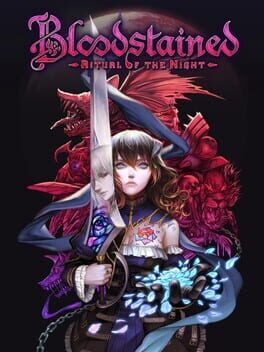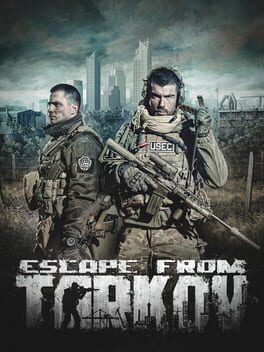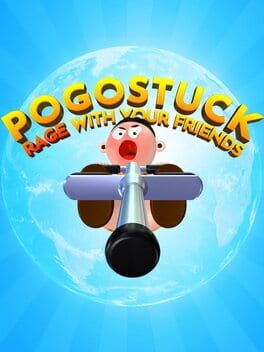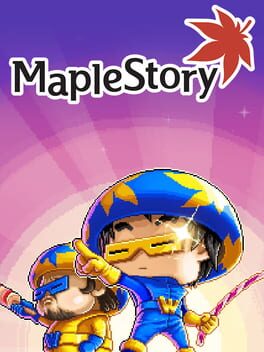pringles_wet
The type of game where it feels really good to grind for hours. For me it started to become a mob grinder simulator. When I entered a new room my brain started to map out the easiest way to exit/re-enter and grind all the enemies. Fun when you have to mess with ur loadout to efficiently clear a room quickly over and over. Playing this way is not at all a requirement btw.
The amount and variety of spells crippled the game's difficulty a bit. I used the NIGHTMARE cheatcode to unlock hard mode, it was pretty brutal at the start but after the first few hours it became trivially easy, especially when it came to bosses, which I could basically permanently stunlock with several spells. I don't think I'd necessarily call the game poorly balanced though. I remember hearing that they designed every boss to be possible to kill with minimal equipment and I think that's a good design basis. Outside of bossfights, spells aren't particularly broken, and I felt like I actually had to experiment a lot to find good spell loadouts for different situations (hitting enemies through walls, hitting many flying enemies, etc.) The sheer volume of spells in the game is cool but I found many of them to be not very good.
For some reason I wanted to try 100%ing the game and gave up at 97% or something. There are so many weapons, many extremely rare drops, also lots of secret enemies I never would have found w/o a guide. But I guess that's in the spirit of Castlevania so I can't complain much. Highly recommend against even trying to 100% the game as it'd involve you just crafting weapons and following guides for hours.
The amount and variety of spells crippled the game's difficulty a bit. I used the NIGHTMARE cheatcode to unlock hard mode, it was pretty brutal at the start but after the first few hours it became trivially easy, especially when it came to bosses, which I could basically permanently stunlock with several spells. I don't think I'd necessarily call the game poorly balanced though. I remember hearing that they designed every boss to be possible to kill with minimal equipment and I think that's a good design basis. Outside of bossfights, spells aren't particularly broken, and I felt like I actually had to experiment a lot to find good spell loadouts for different situations (hitting enemies through walls, hitting many flying enemies, etc.) The sheer volume of spells in the game is cool but I found many of them to be not very good.
For some reason I wanted to try 100%ing the game and gave up at 97% or something. There are so many weapons, many extremely rare drops, also lots of secret enemies I never would have found w/o a guide. But I guess that's in the spirit of Castlevania so I can't complain much. Highly recommend against even trying to 100% the game as it'd involve you just crafting weapons and following guides for hours.
2017
Serious milsim shooter on the surface, but it's actually more like gun runescape. Lots of time in this game is spent thinking about your character's obscene amount of stats, exp, leveling, collecting, questing, and sorting your items and equipment. It's super satifying.
There are thousands of little things to learn about and memorize like which locations you can get specific resources, which weapons/ammo types are worth using, and more. A couple of times a year the servers wipe and you get to play all over again and progress even faster with all your nuggets of knowledge and experience.
The visuals are extremely dense with lots of endearing little details, like lovingly animated first person food eating animations, showing your PMC cracking open a can of sardines picking out and eating each fish at a time. Lots of cute scrawlings and grafittis on walls and envrionmental details like that.
The game is pretty torturous a lot of the time, since you lose everything on your character when you die. The community feels a lot more friendly than many other shooter games though, and I think because the game is so complex and difficult that it feels like everyone has more incentive to help each other out and share knowledge. It's a PvPvE game but it's also more like the players are fighting together against the brutal difficulty of the game itself. IMO this captures the lifeblood of many old MMO games.
About the different priced editions of the game:
A considerable % of people who play Tarkov have purchased the Edge of Darkness edition, which is $150, and includes a bunch of starter items + a large secure container (you keep all the items in there if you die). I've always held off, playing the cheapest edition with the smallest secure container/stash size, thinking that maybe I'll upgrade later. I eventually decided this is my favorite way to play. The smallest secure container is so tiny, and it makes the early game much more challenging and exciting. The small stash size forces me to be critical of what I loot, pushing to get valuable containers like the lucky scav junkbox as early as possible. Unlocking the first secure container upgrade (beta) early on feels SO rewarding. If I had the EOD edition it would be fully worthless. Plus I saved literally like $100. If that sounds good to you. I highly recommend at least playing a wipe or two before upgrading to an expensive edition of the game.
There are thousands of little things to learn about and memorize like which locations you can get specific resources, which weapons/ammo types are worth using, and more. A couple of times a year the servers wipe and you get to play all over again and progress even faster with all your nuggets of knowledge and experience.
The visuals are extremely dense with lots of endearing little details, like lovingly animated first person food eating animations, showing your PMC cracking open a can of sardines picking out and eating each fish at a time. Lots of cute scrawlings and grafittis on walls and envrionmental details like that.
The game is pretty torturous a lot of the time, since you lose everything on your character when you die. The community feels a lot more friendly than many other shooter games though, and I think because the game is so complex and difficult that it feels like everyone has more incentive to help each other out and share knowledge. It's a PvPvE game but it's also more like the players are fighting together against the brutal difficulty of the game itself. IMO this captures the lifeblood of many old MMO games.
About the different priced editions of the game:
A considerable % of people who play Tarkov have purchased the Edge of Darkness edition, which is $150, and includes a bunch of starter items + a large secure container (you keep all the items in there if you die). I've always held off, playing the cheapest edition with the smallest secure container/stash size, thinking that maybe I'll upgrade later. I eventually decided this is my favorite way to play. The smallest secure container is so tiny, and it makes the early game much more challenging and exciting. The small stash size forces me to be critical of what I loot, pushing to get valuable containers like the lucky scav junkbox as early as possible. Unlocking the first secure container upgrade (beta) early on feels SO rewarding. If I had the EOD edition it would be fully worthless. Plus I saved literally like $100. If that sounds good to you. I highly recommend at least playing a wipe or two before upgrading to an expensive edition of the game.
Pogostuck feels closer to my experience with learning how to skateboard than any other game I've ever played.
Stuff that seems almost impossible at first becomes fully intutive after hours of practice and building up that pogo intuition. The pogo becomes an extension of yourself. Your brain sort of becomes a machine for calculating the angle of the ground against the tip of your pogostick. You learn little tricks like hooking ledges and scooping up slopes, and much more (I don't even really know what to call these techniques, since they just became intuitive to me over time).
The recovery mechanic where falling a large distance and bouncing will launch you almost the full distance you've fallen sets up some awesome and exciting situations too if you manage to save yourself.
The nature of "foddian" level design where you can lose all your progress from a single missed jump forces you to master previous sections since you'll be doing them MANY, MANY times. To put that into perspective, it took me 70 hours to finish the first level for the first time. I felt like trying again right after, and I beat it in 20 minutes.
I've only played the first level, but I think the last 10% was p inconsistent. There are a few jumps near the end that I don't feel like really test my pogostuck ability, and are more like very tight precision leaps of faith.
I also like the art style, it's got an "open source linux game from 2013" look.
Stuff that seems almost impossible at first becomes fully intutive after hours of practice and building up that pogo intuition. The pogo becomes an extension of yourself. Your brain sort of becomes a machine for calculating the angle of the ground against the tip of your pogostick. You learn little tricks like hooking ledges and scooping up slopes, and much more (I don't even really know what to call these techniques, since they just became intuitive to me over time).
The recovery mechanic where falling a large distance and bouncing will launch you almost the full distance you've fallen sets up some awesome and exciting situations too if you manage to save yourself.
The nature of "foddian" level design where you can lose all your progress from a single missed jump forces you to master previous sections since you'll be doing them MANY, MANY times. To put that into perspective, it took me 70 hours to finish the first level for the first time. I felt like trying again right after, and I beat it in 20 minutes.
I've only played the first level, but I think the last 10% was p inconsistent. There are a few jumps near the end that I don't feel like really test my pogostuck ability, and are more like very tight precision leaps of faith.
I also like the art style, it's got an "open source linux game from 2013" look.
2003



